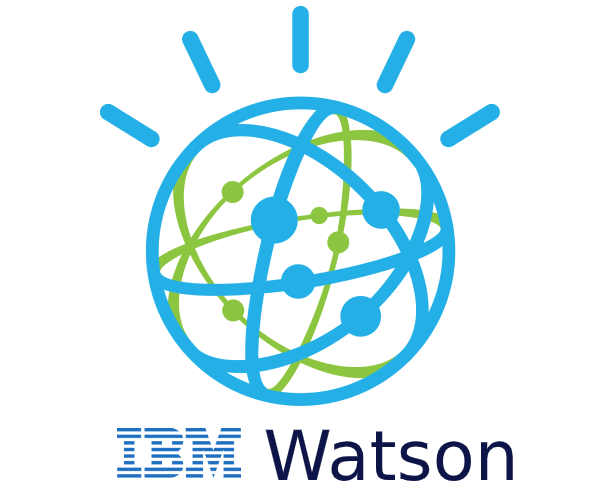IBM Watson Review: Unlocking Business Innovation with Explainable AI

Since its iconic victory on Jeopardy! in 2011, IBM Watson has become much more than a trivia-winning AI. Today, it’s a powerful platform for solving real-world business challenges across industries—from healthcare and finance to retail and manufacturing.
In this review, we explore what IBM Watson offers, how it supports business transformation, and why it represents the future of ethical, explainable AI.
What is IBM Watson?
IBM Watson is an enterprise-grade AI platform that combines machine learning, natural language processing (NLP), and data analytics to help businesses make smarter decisions. It’s built on IBM Cloud, ensuring secure, scalable deployment options for companies of all sizes.
Watson offers a suite of industry-specific tools, including:
- 🤖 Watson Assistant – Create intelligent chatbots and virtual agents
- 🔍 Watson Discovery – Extract insights from large volumes of unstructured data
- 💻 Watson Studio – Build, train, and deploy machine learning models
- 🏥 Watson Health – Support healthcare providers with AI-powered diagnostics and data analysis
What sets Watson apart is its focus on explainable AI (XAI) and seamless system integration, giving businesses confidence in both outcomes and operations.
How IBM Watson Helps Businesses Succeed
IBM Watson is designed to solve practical business problems across various departments and industries. Here’s how companies are using Watson today:
1. Elevating Customer Service with AI Chatbots
Watson Assistant enables businesses to build virtual agents that handle customer inquiries, resolve issues, and offer personalized assistance.
✅ Example: A retail brand implements a 24/7 chatbot to track orders, recommend products, and reduce call center costs—all while improving customer satisfaction.
2. Turning Unstructured Data Into Insights
With Watson Discovery, businesses can analyze documents, emails, reports, and social posts to extract trends, sentiments, and actionable insights.
✅ Example: A financial services firm uncovers key customer concerns by mining online reviews and survey responses, helping shape its product roadmap.
3. Enhancing Healthcare Decision-Making
Watson Health helps providers analyze patient data, medical literature, and diagnostic results to deliver evidence-based recommendations.
✅ Example: A hospital uses Watson to personalize cancer treatment plans by analyzing thousands of medical studies alongside patient records.
4. Optimizing the Supply Chain
AI can predict and mitigate supply chain disruptions. Watson analyzes real-time logistics data and suggests smarter procurement and routing strategies.
✅ Example: A manufacturing company reduces delivery delays by using Watson to predict supply bottlenecks and recommend alternate suppliers.
5. Transforming Human Resources
Watson streamlines hiring and talent management by matching candidates to job roles, screening resumes, and identifying internal growth opportunities.
✅ Example: A recruitment agency automates applicant screening using Watson Candidate Assistant, ensuring the best-fit candidates are identified quickly and fairly.
Why IBM Watson Represents the Future of AI
IBM Watson isn’t just another AI toolkit—it reflects a shift toward responsible, transparent, and industry-aligned AI development. Here’s how it’s setting new standards:
1. Explainable AI (XAI)
Trust is vital in AI adoption. Watson’s XAI approach ensures that users can understand how models arrive at conclusions—crucial in sensitive fields like healthcare, finance, and legal compliance.
➡️ Doctors can see exactly why Watson recommended a certain diagnosis, helping them make more informed decisions.
2. Industry-Specific Tools
Unlike generic AI platforms, Watson delivers tailored solutions for regulated industries. Its tools are built with security, compliance, and domain expertise in mind.
➡️ Watson Health complies with HIPAA standards, while Watson Financial Services adheres to strict banking regulations.
3. Collaborative AI Development
Watson’s open architecture enables businesses to co-create AI solutions with IBM or third-party partners, combining in-house knowledge with expert support.
➡️ A retail chain partners with IBM to co-develop a smart inventory system that adapts to customer demand and seasonal trends.
4. Ethical and Inclusive AI
IBM has long been a leader in AI ethics. Watson includes tools to detect bias, promote fairness, and ensure data privacy—fostering trust with users and regulators alike.
➡️ A loan provider uses Watson’s bias-detection tools to ensure its credit scoring models don’t discriminate against certain demographics.
Limitations of IBM Watson
While powerful, Watson isn’t without challenges:
- 🔧 Complex Setup – Implementing and customizing Watson often requires experienced data scientists or consultants. Smaller teams may face a learning curve.
- 📉 Explainability vs. Accuracy – Models focused on transparency might sacrifice a bit of predictive performance compared to “black box” systems.
- 🌐 Cloud Dependency – Watson relies on IBM Cloud infrastructure. Businesses in low-connectivity areas may encounter usage limitations.
Nonetheless, these are manageable for companies willing to invest in a robust AI strategy.
Who Should Use IBM Watson?
IBM Watson is best suited for:
- 🏥 Enterprises in regulated industries (healthcare, finance, government)
- 💡 Innovation-driven teams exploring AI for automation or analytics
- 🏢 Mid-size to large businesses with access to technical or consulting resources
- 🤝 Organizations that value transparency, data privacy, and ethical AI
If your business needs a powerful, enterprise-ready AI platform that goes beyond basic automation, Watson is a top contender.
Final Verdict: Is IBM Watson Worth It?
Yes—especially for businesses needing enterprise-grade, explainable, and ethical AI solutions. IBM Watson’s capabilities go far beyond surface-level automation, offering tailored tools that can reshape operations and enhance decision-making across your organization.
Its focus on transparency, industry compliance, and AI fairness makes it a forward-thinking platform—ideal for companies that take AI responsibility seriously.
